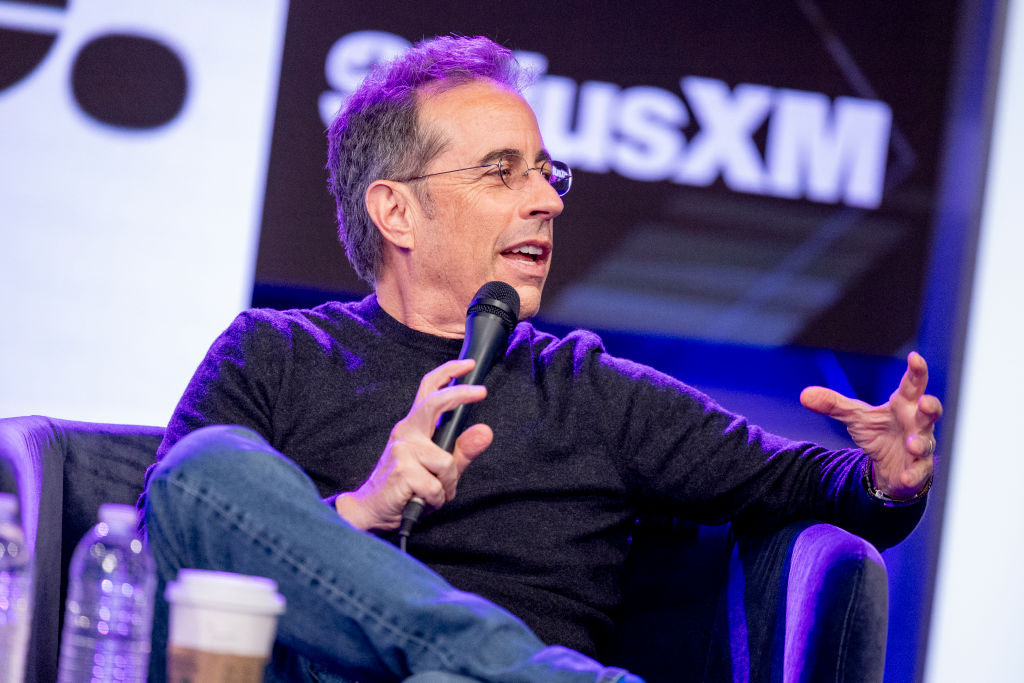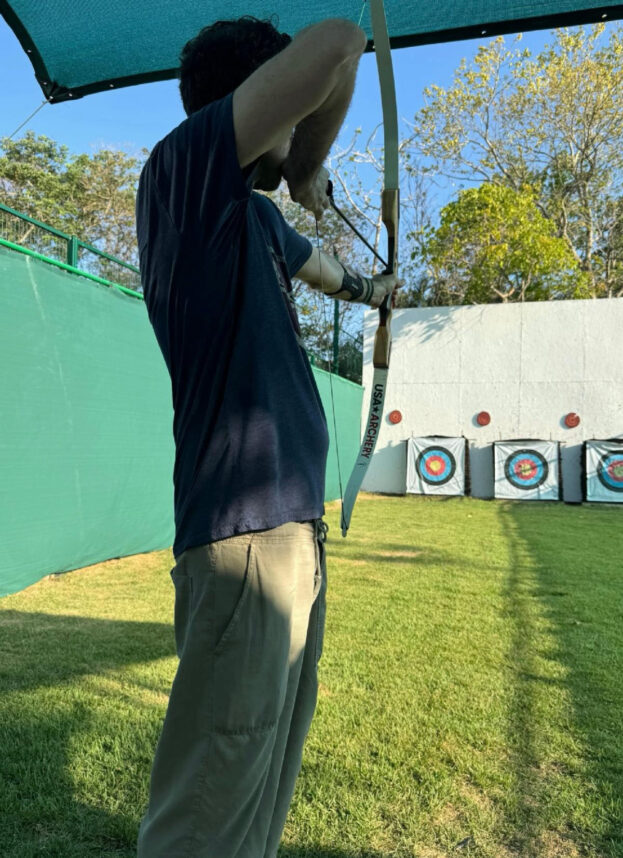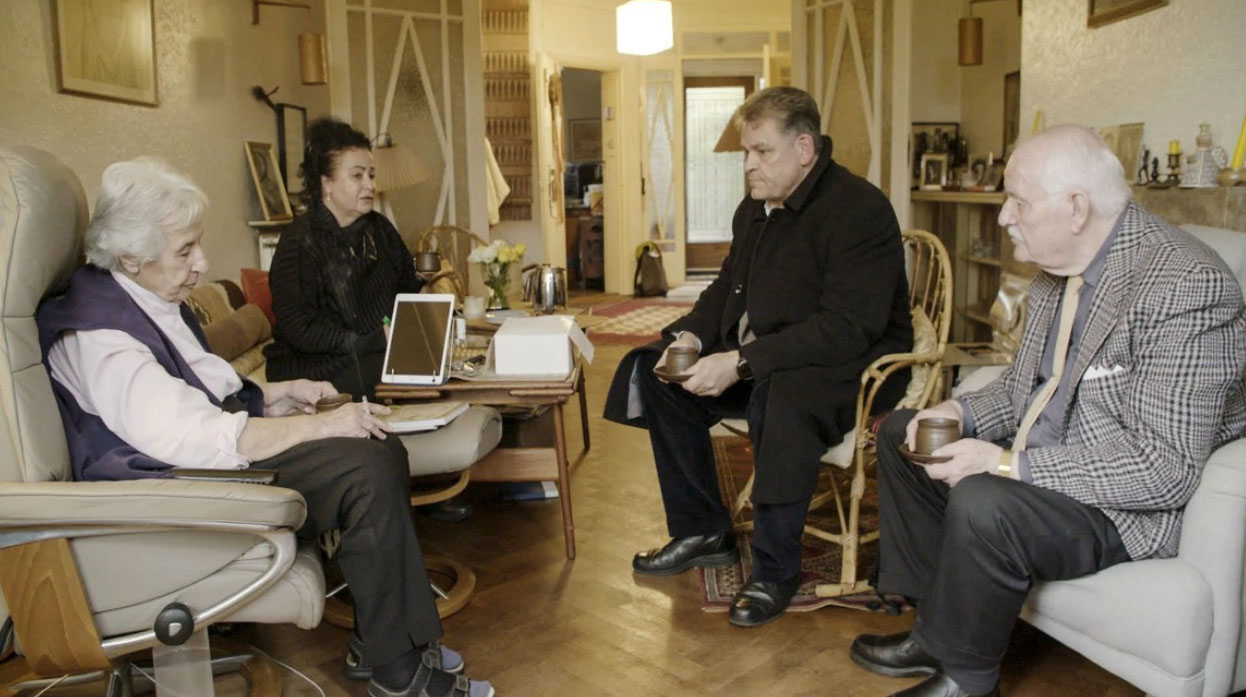 Jerry Seinfeld attends SiriusXM’s ‘Unfrosted’ Town Hall at SiriusXM Studios on April 30, 2024 in Los Angeles, California. (Photo by Emma McIntyre/Getty Images for SiriusXM)
Jerry Seinfeld attends SiriusXM’s ‘Unfrosted’ Town Hall at SiriusXM Studios on April 30, 2024 in Los Angeles, California. (Photo by Emma McIntyre/Getty Images for SiriusXM) For Jerry Seinfeld there would be
no red lines, as a great comedian;
the only line on which we’d see
him walk appeared to be the median.
While on this line he, unbefuddled,
would in a wonderland like Alice
once wander, Jerry never muddled
the media, starring minus malice.
His stories were about events
concluding always with confusion,
unspoiled by sheer malevolence,
spite spurned by him as unamusing,
his sense of humor never guiding
him towards it as a source
of inspiration by deriding
malignancy of this foul force.
Reality now causes Jerry
to walk along a different line.
On the median no more merry,
while anti-Zionists malign
the right of Jews to have a state,
along a line that white and blue
he walks, and does not hesitate
to join his maddened crowd, a Jew.
In “Jerry Seinfeld Can No Longer Be About Nothing,” NYT, 5/4/24, Matt Flegenheimer and Marc Tracy write:
Jerry Seinfeld became a mic-cradling, cereal-eating, “did-you-ever-notice”-ing avatar of American Jewish life with a brazenly shrugging persona: a merry indifference to weighty material as a comedian and in his megahit TV show about nothing, as petty and apolitical as he seemed to be.
Now — off-camera, at least — Mr. Seinfeld appears to have reached his post-nothing period.
Since the attacks of Oct. 7 in Israel, and through their bloody and volatile aftermath in Gaza, Mr. Seinfeld, 70, has emerged as a strikingly public voice against antisemitism and in support of Jews in Israel and the United States, edging warily toward a more forward-facing advocacy role than he ever seemed to seek across his decades of fame.
He has shared reflections about life on a kibbutz in his teens, and in December traveled to Tel Aviv to meet with hostages’ families, soberly recounting afterward the missile attack that greeted him during the trip.
He has participated, to a point, in the kind of celebrity activism with which few associate him — letter-signing campaigns, earnest messages on social media — answering simply recently when asked about the motivation for his visit to Israel: “I’m Jewish.”….
In one recent interview — part of a promotional tour for the Pop-Tarts movie — Mr. Seinfeld said he felt “very close to the struggle of being Jewish in the world.”
He has also stopped himself short of full-scale sermonizing.
“I don’t preach about it,” he told GQ last month. “I have my personal feelings about it that I discuss privately. It’s not part of what I can do comedically, but my feelings are very strong.”
Gershon Hepner is a poet who has written over 25,000 poems on subjects ranging from music to literature, politics to Torah. He grew up in England and moved to Los Angeles in 1976. Using his varied interests and experiences, he has authored dozens of papers in medical and academic journals, and authored “Legal Friction: Law, Narrative, and Identity Politics in Biblical Israel.” He can be reached at gershonhepner@gmail.com.























 More news and opinions than at a Shabbat dinner, right in your inbox.
More news and opinions than at a Shabbat dinner, right in your inbox.